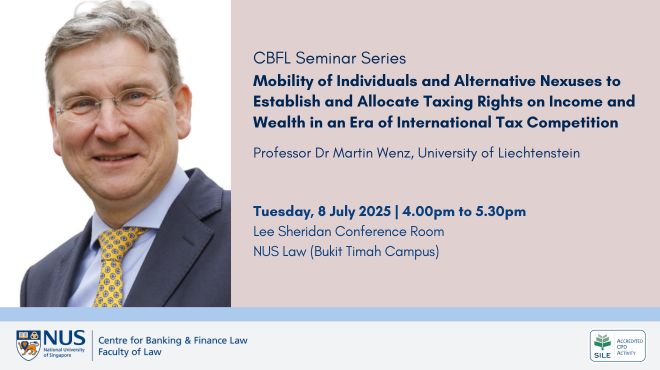Description
About the Seminar
While the global debate often frames digital money as a contest between central bank digital currencies and private stablecoins, Asia-Pacific is where those ideas are now being turned into law, licensing regimes, and market infrastructure. Across the region, stablecoins are being pulled out of the “crypto” bucket and rewritten into payments, banking, and market-conduct rulebooks, alongside parallel reforms on tokenisation, custody, trading platforms, and wholesale settlement. The result is not one APAC model, but a spectrum: from prohibition in China, to tightly supervised issuance regimes in Hong Kong, Singapore and Japan, to fast-evolving transitional frameworks in Australia, Korea and Taiwan. This seminar focuses on what that regulatory reality means in practice. It will examine how APAC’s stablecoin rules on issuance, reserves, custody, and distribution are shaping who can use stablecoins, for what purposes, and across which borders—and how this is interacting with broader market-infrastructure reforms such as tokenised assets and wholesale CBDC experiments. Rather than revisiting the high-level question of public versus private money, the discussion will look at what is actually being built today, where fragmentation is already being hard-wired into the system, and what the APAC experience tells us about the future of stablecoins as a serious payments instrument in the region and beyond.
About the Speaker
Lisa is a seasoned politics, policy and regulatory affairs professional and leader, based in Singapore. She advises clients on policy, political, regulatory and geopolitical issues in the Asia-Pacific region and globally, with a particular focus on the financial services sector, bringing deep Asia-Pacific regional expertise and a strong, practical understanding of client needs across diverse markets and regulatory environments. Lisa has 14 years of combined experience across the financial services industry and legal academia, spanning both civil law and common law jurisdictions. Her expertise includes financial regulation, the regulation of new technologies such as Web3 and cryptocurrencies, ESG and sustainability requirements in financial markets, and the integration of sustainability objectives into financial-sector regulation. She is known for translating complex regulatory and geopolitical developments into actionable, commercially relevant insights for senior decision-makers, and for advising clients on the business implications of geopolitical change. Lisa has been based in Asia for a decade, where she has built deep regional insight and trusted relationships.
Date and Time
Thursday, 26th March 2026 4:00PM GMT+08:00
to
Thursday, 26th March 2026 5:15PM GMT+08:00
Organisation
Faculty of Law
Contact Email
cbfl@nus.edu.sg
Location
CBFL Meeting Room (Elm Level 1),NUS Law (UTown)





